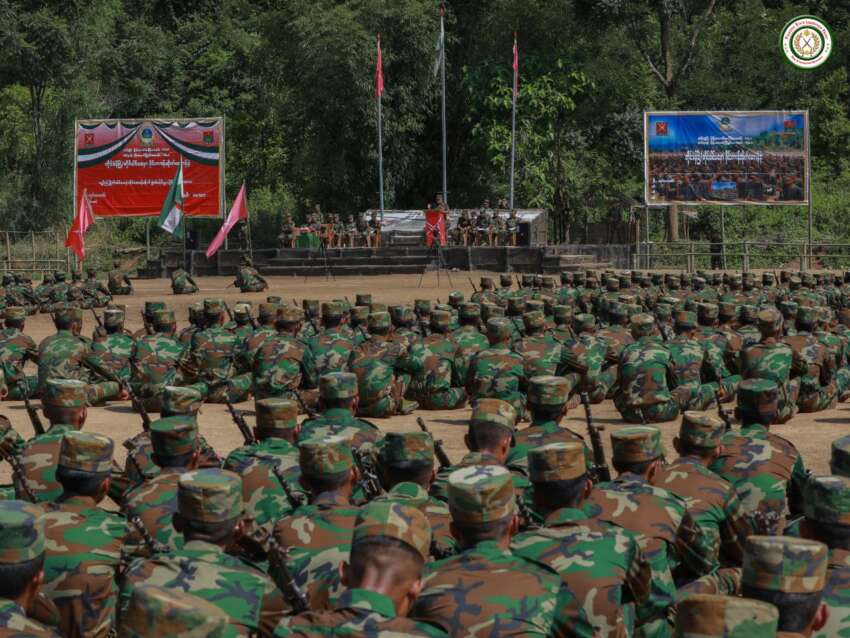
The Ta’ang National Liberation Army (TNLA) has reported continued fighting with military council forces across seven villages in Naung Cho Township, northern Shan State. The clashes are occurring in TNLA-controlled areas including Letpankone, Thayetkone, Nyaungtaw, Shwethon, Lonway, Umthi, and Samse villages. During these engagements, the military council has launched attacks using 144 heavy artillery shells and 31 drone-dropped bombs. The fighting began on June 20th in the morning between Pinneikone and Nyaungtaw villages, where the military council initiated attacks with heavy artillery. Similar clashes erupted between Thayetkone and Kangyi villages, followed by battles near Letpankone and Leiwei villages.
In Shwethon village, the military council intensified its offensive by firing 53 artillery shells and dropping 15 drone bombs during the confrontation. The fighting has also spread to Samse and Umthi villages, with additional clashes reported between Yemaingtan and Shwenyaunpin villages. The TNLA has reported that the military council is not only using heavy artillery but has also deployed chemical weapons in these engagements. Despite the military council’s announcement of a ceasefire for the entire month of June, they continue to launch aggressive offensives in Naung Cho Township. The Three Brotherhood Alliance had declared a ceasefire to facilitate humanitarian assistance for earthquake victims, but the military council’s violation of their own ceasefire agreement has led to the continuation of these conflicts.
The ongoing military operations in Naung Cho Township demonstrate the military council’s disregard for their own declared ceasefire and the humanitarian needs of the local population. The TNLA reports that they are defending their controlled territories while the military council continues to escalate the situation with heavy weapons and aerial attacks. The use of chemical weapons by the military council represents a serious escalation in their tactics and poses additional risks to civilian populations in the affected areas. The situation remains tense as the military council continues its offensive operations despite the supposed ceasefire period, hampering humanitarian efforts and endangering civilian lives in the region.



